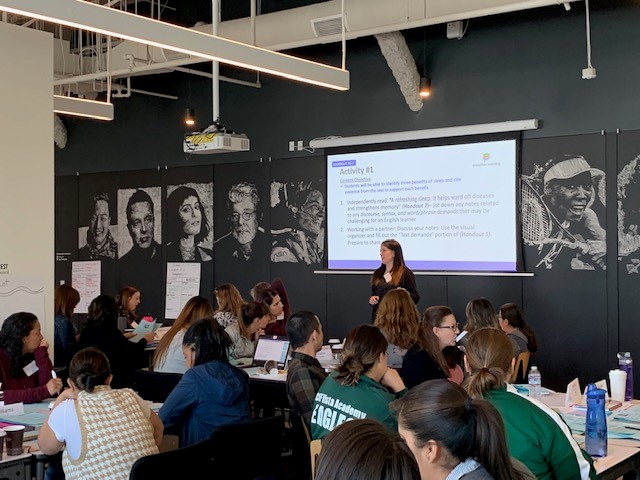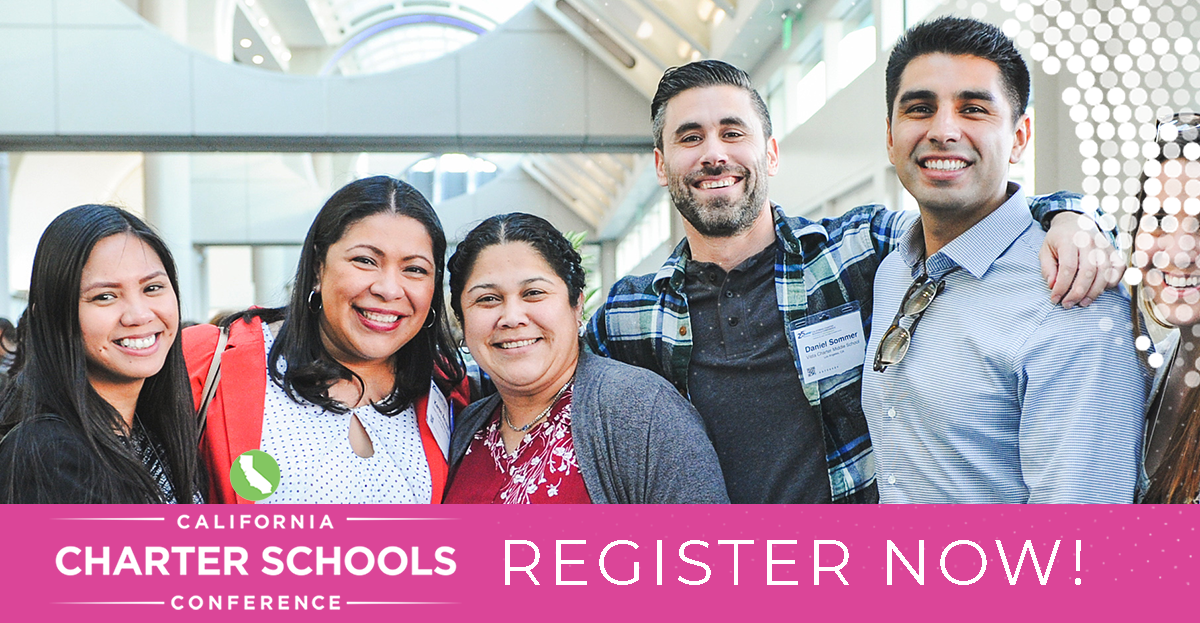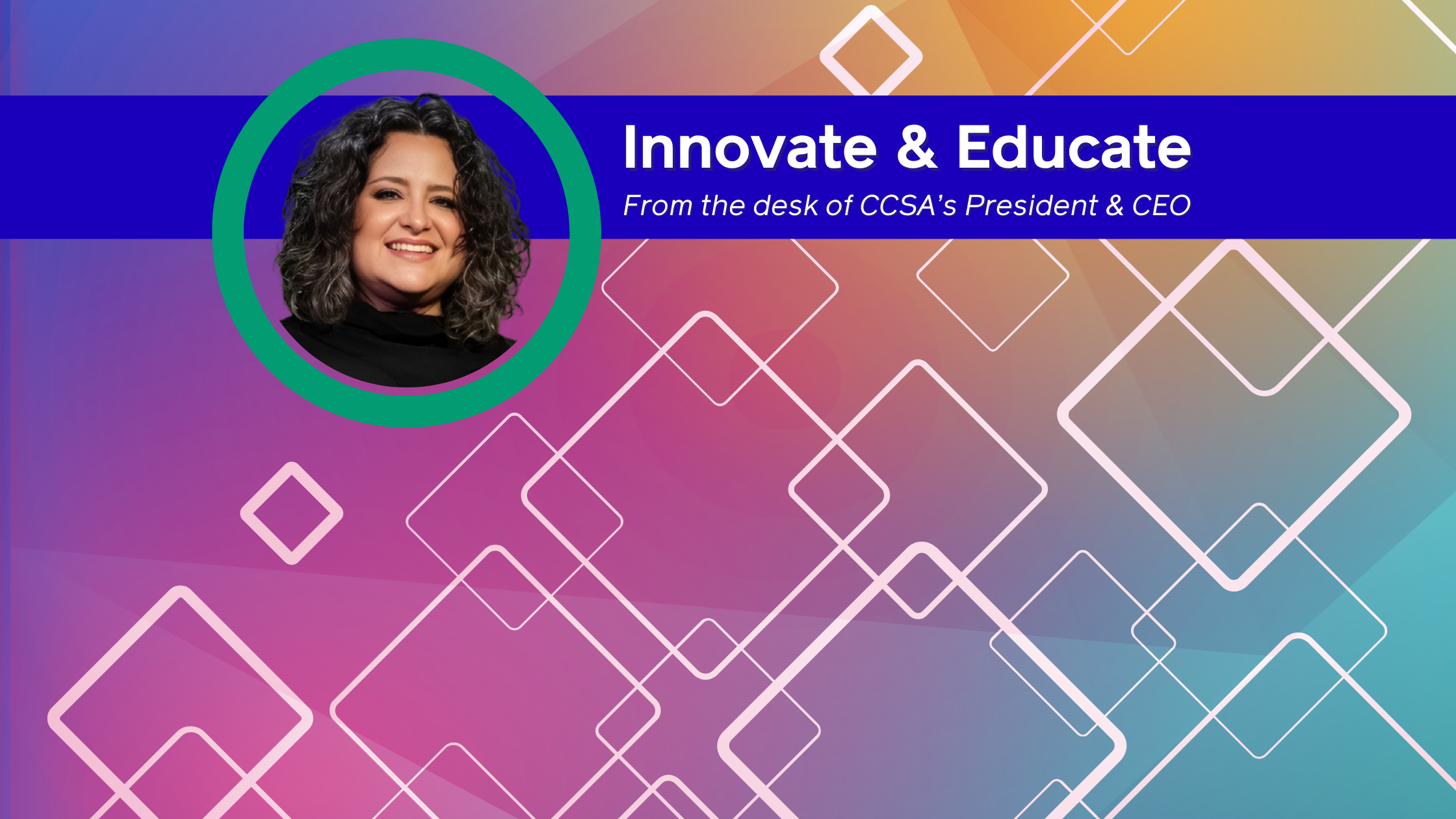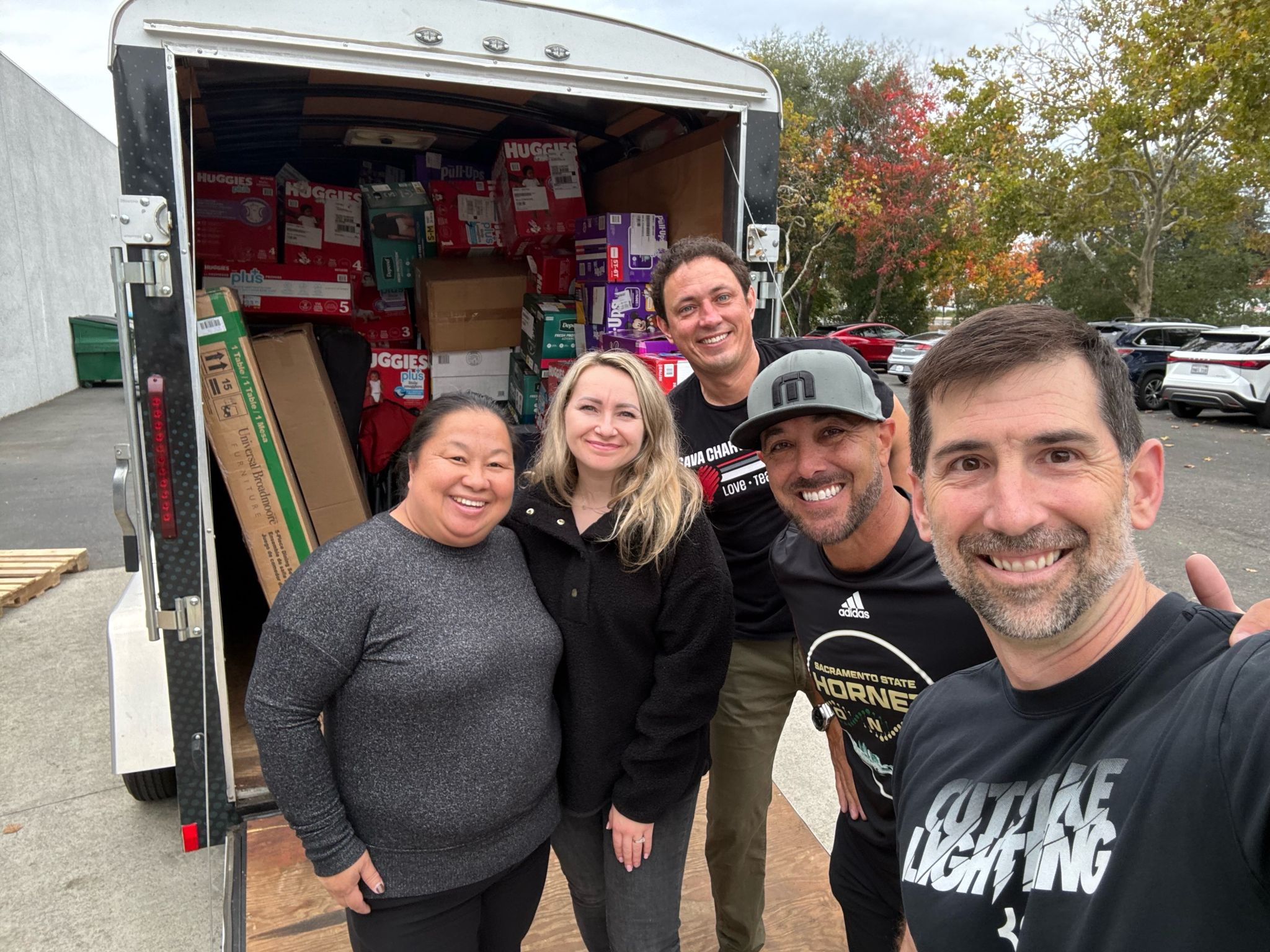This is the first installment in a series of interviews with champions in the fight for educational equity in the K-12 system.
We had a conversation with Rocío Figueroa, the Director of Equity for English Learners at Ensemble Learning, a nonprofit organization that advocates for the advancement of instruction for English Language Learners.
This interview is edited for clarity and brevity. Lee en español aquí.
CCSA: What does it mean to be an Equity Director for English Learners?
ROCÍO: My role in the organization is to be the expert in learning the language. In all the programs and services we provide, I use the students’ point of view to make sure that we are meeting their needs individually because there are different learner profiles and each profile has different needs.
CCSA: Why is it important that the services your organization offers exist?
ROCÍO: We don’t just focus on teaching. We really look at the cultural aspects; how the student feels in school and how teachers treat students, because if the student does not feel respected or their culture is not respected, this student will not learn.
A year ago, we received a SEED Grant, which is U.S. Department of Education funds for the development of educators. Our SEED Grant focuses on assisting charter schools in developing leadership within their teams to close the achievement gap between English Language Learners and the rest of the students.

To achieve change in a school, more than one person is needed. So, we form cohorts from different charter schools so that they build their own leadership teams. And, for example, if the principal leaves, the work can still continue. We help them create a English Learner Improvement Plan where they evaluate what is going on at their school; in which areas their students are performing or need help, how students feel, etc. the goal is to improve the learning and the culture throughout the school. My team also works with the principals at the schools to help them develop a plan and put it into action.
CCSA: How do you assess if the programs you offer are successful?
ROCÍO: Each of the schools we work with have their own goals. We have found that we have good results because we are not ordering the faculty to do X or Y in areas where it’s not needed. We encourage them to take a close look and diagnose what the best next step is for their own school so that we can give them support in changing the areas they identify need it. An example is the Uplift Summit International Preparatory school in Arlington, Texas. In February, all students took a survey on how they felt at school and asked they believed they had the tools necessary to be successful in all their subjects. The English Language Learners group gave the lowest scores in satisfaction. So, we began to teach techniques and make changes. Fast forward to November when we took the survey again, the group of students learning English showed satisfaction eleven points higher than the average - This month we are in the evaluation phase with the schools we are working with in California.
CCSA: How can families support teachers' efforts to help students reclassify?
ROCÍO: Parent participation is super important! In California, one of the four requirements to reclassify a student is parent input. A student can pass the ELPAC test and may have good results in their CAASPP, but the parent's approval is the deciding factor. That shows you the importance of a parent being involved.
As [Latinos], we come from cultures where the teacher opinion is the law and many times parents don’t know the influence parents have. This results in students not receiving the services they need and parents, out of fear or respect, don't know that their voice is very important. I recommend that parents join their school or district’s English Language Advisory Committees (ELAC or DELAC) to help inform schools to better understand the needs of students.
It is necessary for parents to know what it means for their child to be in an English Learner Program and that it is a privilege, meaning, something good. The program is there to help them.
CCSA: What inspired you to choose this career?
ROCÍO: I was in college and a teacher told me to think what had a big impact in my life that I wanted to change and that that was where I should focus my work so that I can have a legacy. Then, I began to think about my educational journey and the lack of a good English Learning education, and it was there and then that I chose my career.
Rocío will be at the upcoming California Charter Schools Conference taking place March, 16-19 in Long Beach. She will be leading the following sessions for school administrators and teachers:
Beyond Instruction: Tackling Equity in the Classroom
Empowering English Learners Through Data Chats and Goal Setting Sessions



